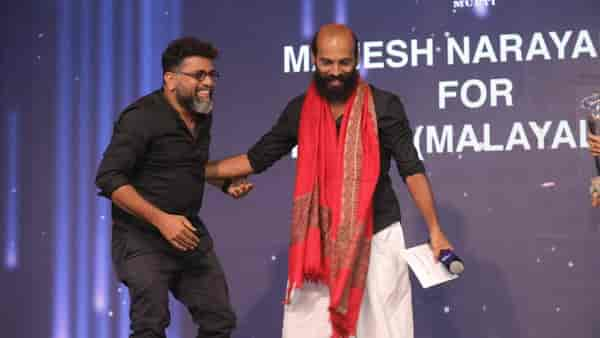OTTplay Awards 2022: Mahesh Narayanan: The onus is on OTTs to ensure that theatres and streaming services co-exist
The Malayalam filmmaker, editor and writer won the OTTplay Award for Best Story for his movie Malik, starring Fahadh Faasil

Last Updated: 05.04 PM, Sep 14, 2022
Director Mahesh Narayanan played a major role in kickstarting Malayalam cinema ascension to the top of the pyramid during the pandemic with Fahadh Faasil’s CU Soon. The filmmaker won the Best Story award at this year’s OTTplay Awards held in Mumbai for his film Malik, which also has Fahadh in the lead role.
In an exclusive chat soon after the award win, Mahesh talked about how the advent of OTTs opened up new possibilities for filmmakers, especially in Malayalam cinema.
“Before the pandemic, OTT platforms had a lot of apprehensions about the South, primarily due to the limited reach,” he said. “When something like CU Soon happened, I personally know how the reach increased because there were films like Joji, Drishyam 2 and then Malik. I believe at one point people within the industry were saying that Malayalam cinema was its peak during the pandemic and when the platforms were actually trying for good films.”

Mahesh also went on to explain how the digital avenue of release for films have helped filmmakers experiment and make movies that would usually shy away from. “I have always been clear that my next film should be different from the previous one. An aspect that is common is the migrant angle. Even in Malik, there’s that bit where a person from Northern Kerala is coming to settle down in Southern Kerala,” he said.
The filmmaker explained that he picks stories from his surroundings and the kind of freedom that directors are getting from digital service providers allows them to choose from a wide array of subjects.
“Nowadays, every time I meet content acquisition teams, licensing teams from OTT platforms or people who want to commission new shows, all I tell them is that they should at least ensure that theatres and platforms co-exist because that would give filmmakers a push to go beyond the usual,” he said.

He also pointed out the case of his latest movie Ariyippu, which has multiple languages. “About 50% of film is in Hindi, the rest in Malayalam with some portions in Tamil. I have a scene where four people are talking but in three different languages. This is possible only with digital new wave and I have grateful for that,” he concluded, thanking his partner-in-crime Fahadh.
I have to dedicate this to my partner in crime, Fahadh Faasil

 Premium
Premium